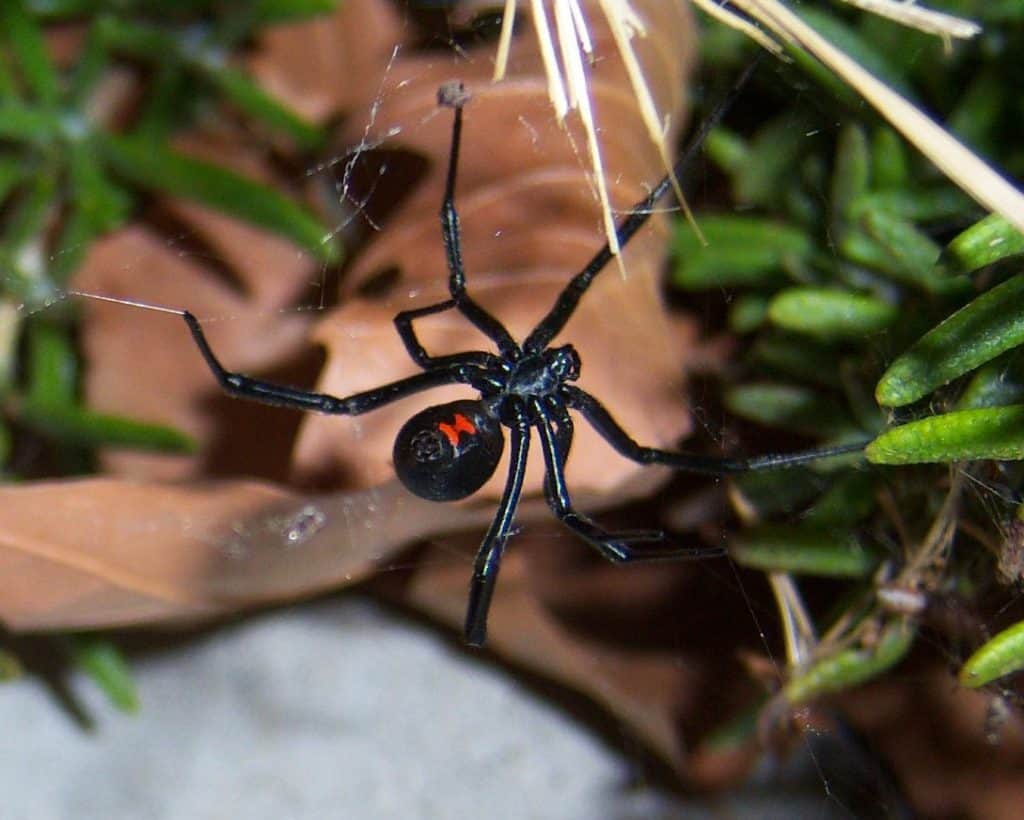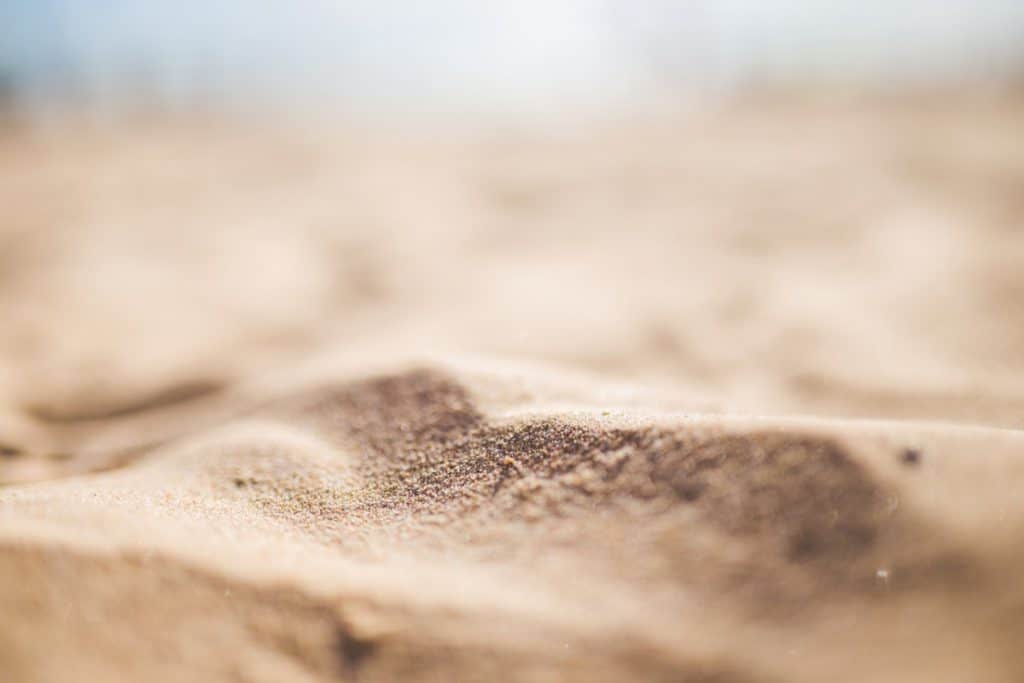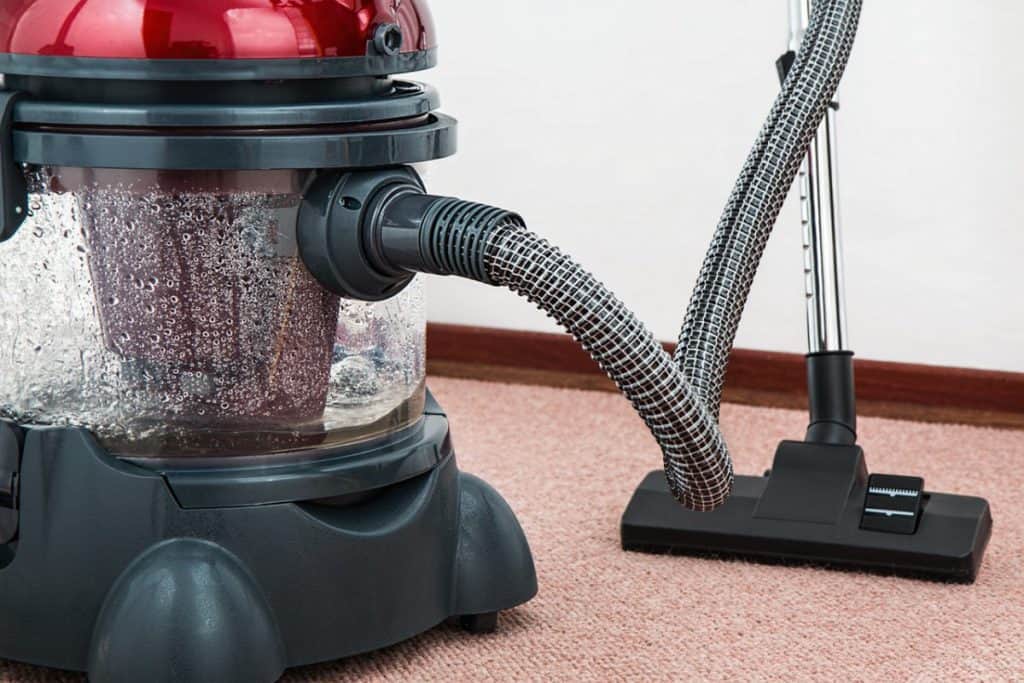
If you enjoy reading this article, why not check out our articles on Do Tarantulas and Spiders Have Brains? and Which Spiders Are Poisonous in Certain States (And Canada)?
What Can Spiders Die From?
A Spider’s Life
Spiders do a lot of wonderful things for us and generally simply ask in return we just leave them alone. They will set-up their webs in out-of-the-way corners of our attics, basement,s or sheds and then prey upon pesky insects that can actually pose a threat to our houses like termites or carpenter ants (do note that spiders are not insects themselves, they have eight legs so they are considered arachnids). Spiders in the wild also can help keep the population of other bugs in check too, for example eating mosquito larva and helping to keep our Summers from being miserable with mosquito bites!
Are Spiders Dangerous?

Therefore, we generally should try to avoid killing spiders because they undoubtedly do a lot of good. With that said, however, sometimes you just have to kill a spider because it might be posing a threat to you, could be a poisonous one you are nervous to have loose in your house, or you simply are terrified of spiders (it’s okay, we don’t judge) and can’t sleep knowing one is hanging out in your house. With that in mind, it is good to know what a spider can, in fact, die from so that if you ever do encounter one you know the best and least cruel way to eliminate one (and can rest assured the method you used actually rendered it dead).
Ways To kill Spider
Hence, we now present a list that answers the question of what spiders can die from, from realistic queries (if spiders can drown) to more out-there theories that are just fun to consider (if outer space would kill a spider). Read on for answers!
If you are still contemplating whether or not it’s good to kill spiders, you may want to check out our article Should You Kill Spiders?
Can Spiders Die From a Fall?
Can spiders survive Big Falls?
We’ve all probably been in situations where we knock a cobweb away with a broom and wonder if the fall to the floor or ground will kill a spider or if it’ll simply angrily skitter away. Well, when it comes to if spiders can die from a fall or not it depends on the type of spider.
Can a tarantula die from falling?
Certain larger species such as Tarantulas simply are not evolved to handle falls from too great a height and can die if they were to drop a number of stories, but smaller spiders actually can use their legs to slow their descent and land from a great height relatively unharmed. In fact, some species of spiders will actually weave little webs they use as balloons to float away on the wind and relocate to find a new home–these spiders don’t just survive being airborne, they embrace it!
You may wonder about Spider
Essentially, the old saying, “The bigger they are the harder they fall,” is, in fact, super-accurate for spiders! Pretty much any spider will shake-off falling from your ceiling to the carpet or even a hardwood floor, but larger spiders will find themselves quite badly injured or killed from a longer fall (say from a third-story window to the ground). Then smaller spiders will basically be fine and might very well be thankful for an opportunity to float among the air if you try to toss them.
Can Spiders Die From Water/Drowning?
Species of Spider survive in a Water
There are species of spiders that actually are capable of swimming and one kind of spider, the Diving Bell Spider, actually spends 99% of its life underwater and only emerges once a day to capture air it stores in its hairs and webs as little air-pockets. Now, if a spider were to get caught up in a strong current or be a kind that is not somewhat at-home in aquatic settings and find itself completely submerged, that may be bad news for the spider (but not always). Now, due to low metabolic rate spiders do not need as much oxygen as we do to survive, so a spider that does not like the water could drown, but it may take up to an hour of time completely without any air for such a spider to drown.
What Happens When You Put Water on Spiders?
Then, if we are dealing with spiders more used to water such as Wharf spiders or the Diving Bell spider putting them in the water is no big deal as long as after a while they manage to escape from a sewage system they may have been flushed-down into. Essentially, spiders are more likely to end-up killed from the force of a blast of water (like a powerful faucet) breaking-through their exoskeleton and smashing their organs than they are likely to drown.
Can Spiders Die From Heat?

Spiders generally prefer temperatures that are hot and dry (excluding those that thrive in water or ones that don’t make webs often and are found in cooler climates such as the Wolf spider), hence liking to set-up their webs in sheds, attics, basements, and other places that can get pretty toasty.
What temperature kills spiders?
Due to this fact spiders can generally survive up to a temperate that is consistently 110 to 120 degrees Fahrenheit without suffering any ill health or dying. Basically, spiders thrive in the heat better than humans, so unless you put a spider in something incredibly hot like an oven or it steps on a turned-up stove-top that burns it up they will generally shrug at heat (metaphorically, spiders, of course, do not literally shrug)!
Can Hairspray Kill a Spider?
Hairspray usually can kill a spider, but it can depend on the brand, type of spider, and a wide-range of factors. Generally, however, a spider being sprayed will inhale the chemicals and they will kill it due to being toxic to a spider.
Is Hairspray toxic to spiders?
However, one thing to take into account is the risk that spraying a bunch of hairspray into the air might pose to you. As this article on Livestrong discusses ( https://www.leaf.tv/4188517/is-hairspray-harmful/ ) many hairspray companies do not disclose all the ingredients they use in their hairspray so as to keep it, “Proprietary,” and prevent other companies from copying their recipes for hairspray.
This lack of knowledge means we do not always know what exactly is in hairspray and how much of a risk it could pose to us if we end-up inhaling a bunch ourselves when we fill a room with hairspray-vapor as we attempt to kill a quick-moving spider.
Hairspray may harmful
Essentially, hairspray generally will kill a spider without too much trouble, but it also may not be the best for our lungs either.
Does Deodorant Kill a Spider?

This question is not referring to the kind of deodorant you roll-on to your skin, although smashing a spider with a stick of deodorant will undoubtedly kill it!
What happened when you spray a deodorant?
No, this is in reference to spray-on deodorant and as with just-discussed hairspray it will be able to kill a spider with ease, but it should be taken into account that deodorant is meant to be sprayed directly onto your skin, and having it fill the air is again not the best for one’s health when you inhale it.
Would Bleach Kill a Spider?
Bleach is extremely acidic and when concentrated high enough can kill basically anything including deadly bacteria and viruses (hence it always being used to clean-up spilled-blood or areas exposed to contagious ailments).
How to get rid of spiders with bleach?
However, the fact bleach is so powerful makes it sometimes dangerous to use as it is harmful to the human body in even relatively small amounts. Knowing this, spiders will easily be killed by bleach even if it is mostly water with some bleach (lots of people making cleaning solutions that are 3 parts water to 1 part bleach or such). It just is also advisable to wipe-up an area that has been covered in bleach with some water or something else to make the bleach less concentrated. Basically, just exercise common-sense if you are trying to kill a spider with a bleach solution. Taking a spray-bottle that contains mostly water with some bleach and spraying it on a spider to kill it is fine, but pouring a bottle of concentrated bleach on a spider will most likely damage the floor/counter/etc. it is poured upon, give off vapors that can cause you to pass-out, and otherwise is pretty unsafe. Again, common sense is key!
There are plenty of natural, less harmful ways to kill household spiders if they are really bothering you. For example – peppermint: Which Pests Can Peppermint Repel?
Can An Electric Shock Kill a Spider?
A small electric shock can really sting a human, with larger volts posing a big risk to us as well due to how they can make even our heart stop! Electric shocks can kill spiders too, essentially frying them from the inside.
It is hard to easily kill a spider with a shock, however (especially a smaller one) because they can try to quickly avoid something such as a taser and you may very well end-up shocking yourself in your efforts to kill a spider with an electric shock. It can be effective if you do hit a spider with a shock, but the hard part is effectively doing it.
Can Be Eaten by Another Animal Kill a Spider?
We often may panic if we see one of our household pets trying to bite and eat a spider. Now, if our cats or dogs manage to get a spider and bite into it enough to kill it before it is able to use its fangs on our pet then the spider will be dead and its bite will pose little threat to the animal that caught and ate it.
Which animals eat spiders?
However, a poisonous spider can make an animal quite sick if swallowed, and if a spider manages to sink its fangs into an animal’s mouth once the animal has begun trying to chew it then the spider will most likely escape unharmed as dog/cat/etc. panics and spits it out due to the painful bite–which again, if poisonous can pose a big risk to another animal. Basically, the smart move is keeping our animals away from spiders or else when they possibly try to munch on them they end up being on the receiving end of a painful bite!
Does Hot or Boiling Water Kill Spiders?
Spiders that live semi-aquatic lives generally do it in regions that are pretty hot, so warm or hot water is not a big deal for these spiders. Splashing warm-water on a spider that isn’t adept at swimming will also likely not bother it much even if it prefers a drier place to hang-out.
What temperature kills spiders?
Now, pouring boiling water on a spider will kill it, but you might also see a lot of people online commenting about how such a method is incredibly cruel and painful for a spider compared to other methods they can be killed that are faster (smashing them) or less pain-inducing for the spider (such as making them cold, discussed below). Depending on your own personal feelings in regards to if you will be upset if a spider suffers while dying putting boiling water upon it may not be the best method for you to practice when it comes to killing one.
Can Spiders Die From Dust?
Regular household dust does not pose much of any risk to spiders. Remember, many of them like to make their webs in places that are rarely-trafficked by humans and can be full of dust. With that said, certain kinds of chemically-treated dust such as, “Delta Dust,” will kill a spider as it is a special kind of dust that will stick to the spider and the chemicals will kill it ( https://www.domyown.com/how-quickly-does-the-delta-dust-kill-spiders-qa-3323.html ). Regular dust though? That is harmless.
Can a Spider Die From Being Vacuumed Into a Vacuum Cleaner?

When a spider is sucked into a vacuum cleaner it is being pulled into complex networking of plastic parts at an incredibly fast speed, so assuming we are talking about a small spider and big vacuum then the spider will die. The force of ricocheting around in a vacuum will basically squash a spider and the trauma to its insides will kill it. Should a spider somehow survive this process it will most likely be stuck in a bunch of tightly-compacted dust and debris, unable to move. This will result in the spider eventually dying from not having food or water, which is arguably more miserable than if it simply got crushed being vacuumed. Now, it was specified earlier this would apply to a smaller spider as if you were to try and vacuum a large Tarantula with a small little vacuum it would maybe have enough strength to pull itself away, or would simply get caught in the main opening of the vacuum, too large to go in and have the trauma of the vacuum sucking on it eventually result in the spider dying.
Can Spiders Die From the Cold?
There are certain species of spiders that can survive in cooler weather such as the Wolf spider, but generally, you will not find many spiders in regions where it is cold. For example, in the county of Canada you might find spiders in the Southern-areas where some seasons are warmer, but the further north you go into the country the more likely it will be difficult to find a spider–or at least one that does not spend most of its time cooped up in a warm area of a house.
Spiders may have bodies that withstand heat well, but they do not handle cold. Should they be exposed to frigid temperatures they will simply slow down, pass-out/fall asleep, and then if they are not brought back-up to a survivable temperature within a day or so, die. Spiders are just not evolved to handle the extreme cold and this makes freezing them one of the most efficient and least-cruel ways to kill a spider ( https://www.smithsonianmag.com/smart-news/if-you-must-kill-that-spider-the-best-way-is-to-freeze-it-88586004/ ) should you desire to have a spider die, but don’t want it to suffer as with if it is covered in boiling water or drowned. Basically, if you can capture a spider in a thick glass cup or container and cover it so the spider is unable to escape, you can then place it in the freezer, give it a day to die, and then dispose of it without any guilt about making the spider’s end painful. It is a lot of effort compared to the more brutal and fast methods (e.g. smashing a spider with a shoe or such) but is basically the “Kindest,” way to make a spider die.
Can Spiders Die Under a Glass or Magnifying Glass?
If you were to smash a piece of sheet-glass onto a spider it would obviously die and have its guts grossly smashed-out all over your glass. What about if you try and do that old trick where you focus a magnifying glass on a spider until it super-heats? Well, just as that will set ants on fire the same applies to spiders. While spider does not mind a regular hot temperature, some localized extreme heat will kill them as it is literally you setting fire to their exoskeleton and intestines.
The difficulty in all this is that spiders are quite fast when they want to be, and should one sense things are getting hot in one spot from a magnifying glass it will make a run for it and you’ll have a weird game of cat-and-mouse where you’re trying to, “Catch,” it with the glass while it avoids you and might very well escape or climb-up on you and bite you for your efforts at burning it alive. Basically, this is simply a mean thing to do to a spider if you are even able to get one under a magnifying glass long enough and arguably too difficult to even accomplish, but it is theoretically possible.
Can Spiders Die of Suffocation?
Spiders do need to breathe as the above discussion about drowning covered, so a spider can indeed die from a lack of oxygen. Should a spider be without any air, however (and lack little saved air bubbles to keep it alive as a Diving Bell spider does underwater) a spider could still survive for up to an hour with zero oxygen thanks to its slowed metabolism? Essentially, if you catch a spider under glass and have it trapped between the drinking glass and the floor or a tabletop it will breathe all of the air contained in its little space and then still have maybe an hour it can survive without dying.
Would a Spider Die in Outer Space?

Spiders have in fact been taken to outer space before but within cages/containers on rocket ships. In outer space, spiders have been observed to spin strange and beautiful webs, so they can survive in zero-gravity on a spaceship with no problem ( https://www.space.com/11818-space-spiders-weightless-webs-station-shuttle.html ).
Now, if a spider were to suddenly find itself ejected out into the cold black emptiness of outer space it would not last for that long. The lack of oxygen would not be as much of a concern as the immense cold and as has been established, spiders cannot withstand the cold for long. Perhaps a spider floating in outer space for a matter of minutes would be able to be resuscitated, but the odds are pretty high a spider that finds itself in outer space without the protection of a ship will soon be dead.
Do Spiders Ever Die of Old Age?
In the wild spiders generally, do not die of old age. They simply get to a point where they are older and able to be preyed upon by other animals or in their old age are not quick enough to avoid something like being stepped-on. For example, there was a spider in Australia that was believed to be 43 years old which passed away–but not due to old age, a wasp stung and killed it ( https://www.cbsnews.com/news/australia-spider-believed-to-be-worlds-oldest-dead-at-43/ ). Basically, spiders get older and find it harder to weave webs, hunt for prey, or otherwise be effective in nature. Spiders in captivity could therefore theoretically live to old age, but captivity seems to not make much of difference with some spiders dying even in a controlled environment for one reason or another–for example, how some species have females who eat males after mating and many female spiders die after laying eggs for offspring.
How do spiders die naturally?
Theoretically some spiders can live for two decades in the wild or captivity (and it has been observed) and that world’s oldest spider might have kept chugging along were it not killed by a wasp, so it is hard to say exactly how old a spider might be able to live if it avoids being eaten by a mate, laying eggs and dying, or getting attacked by other predators such as wasps or humans trying to kill it one of the many ways this article has covered!
Conclusion
Spiders do a lot of great things for us, but if they have to die this article has made it clear there are easier ways to kill them that are admittedly cruel such as;
- (Boiling water) harder ways that are gentler (freezing them) outright wacky ways that could theoretically work.
- (A magnifying glass) and methods to kill a spider that requires you be careful to not make yourself ill with chemicals (hairspray, deodorant, bleach).
- Spiders also can die from being eaten by other animals or attacked by fellow predators.
- With it theoretically possible a spider could live to old age and die off, “Natural causes,” but such a thing never has been observed.
- We have now examined what spiders can die from and know the best methods to use so that if a spider needs to die, it can for sure be dead and not end-up surprising someone who thinks they’ve suffocated a spider after a few minutes only to discover its ready to run-off as soon as you give it a method of escape.
- You shouldn’t kill a spider unless you have to, but if a spider has to die, now you’ve got all the information you need to get it done 100% right!
If you enjoyed reading this article, why not check out our articles on American Cockroach Facts and Can You See Cockroach Eggs? The Simple Answer
Recent Posts
Tiny Black Bugs in Bathroom NO WINGS: What They Are and What to Do!
Finding tiny black bugs in your bathroom can be uncomfortable, to say the least. Especially if they are persistent, or they appear in very large numbers, which they often like to do. When it...
Tiny Black Bugs in Plant Soil - What Are They & What To Do About It
A short horror story: You get a new houseplant. You do your best to take care of it. You’ve ensured that it has the right soil, the right amount of sun, it gets enough water. And then one day, you...

